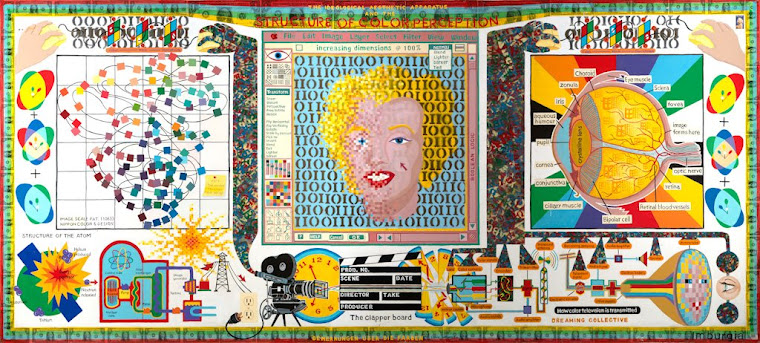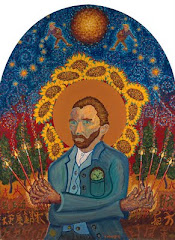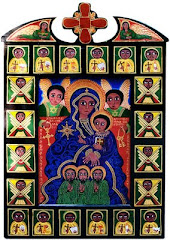*** Klediments:
 |
| Dolly Parton by Andy Warhol |
*** "Hello God" By Dolly Parton.
Hello God, are you out there?
Can you hear me, are you listenin' any more?
Hello God, if we're still on speakin' terms
Can you help me like before?
I have questioned your existence,
My resistance leaves me cold
Can you help me go the distance?
Hello God, hello, hello
This old world has gone to pieces
Can we fix it, is there time?
Hate and violence just increases
We're so selfish, cruel and blind
We fight and kill each other
In your name, defending you
Do you love some more than others?
We're so lost and confused
Hello God, can you grant us
Love enough to make amends
Is there still a chance
That we could start again
Hello God, we've learned our lesson
In the name of all that's true
Hello God, please forgive us
For we know not what we do
Hello God, give us one more chance
to prove ourselves to you
Hello, God, hello.
*** There is an organization of Jews in Israel that I have supported called ZAKA (Zihuy Korbanot Ason)< http://www.zaka.us/video.asp#.Ucm1RuAijzI > It is a voluntary group of Orthodox men who rush to the scenes of bombings and reverently gather up even the tiniest pieces of the bodies blown to smithereens (I don’t know if there is an equivalent group of Muslims that perform the same service for Palestinians blown up by Israelis). I wonder though that if we blow up this whole planet will there will be a group of more (advanced?) extra-terrestrials, or maybe even just special angels, who will wing around the cosmos and gather together all the burned and broken bits of earth and burned flesh and zip us all back together into one humongous body bag? And then what...a miracle?
*** I kept re-reading Simone Weil’s essay on “affliction” all this week. But I am still not quite sure how affliction differs from all it’s synonyms in Weil’s writing. “Affliction: adversity, anguish, calamity, cross, depression, difficulty, disease, disorder, distress, grief, hardship, illness, infirmity, misery, misfortune, ordeal, pain, plague, plight, scourge, sickness, sorrow, suffering, torment, trial, tribulation, trouble, woe.”
Here are some significant passages from Weil that offer some insight:
I get tired of the darkness all around me. The darkness itself seems to borrow, from the sinners who live in it, the gift of speech. I hear its mocking accents: It's all a dream, this talk of a heavenly country, of a God who made it all, who is to be your possession in eternity! All right, go on longing for death! But death will make nonsense of your hopes; it will only mean a night darker than ever, the night of mere non-existence!
In the realm of suffering, affliction is something apart, specific, and irreducible. It is quite a different thing from simple suffering. It takes possession of the soul and marks it through and through with its own particular mark
The martyrs who entered the arena singing as they went to face the wild beasts, were not afflicted. Christ was afflicted. He did not die like a martyr. He died like a common criminal, confused, with thieves, only a little more ridiculous. For affliction is ridiculous.”
I think I get that “ridiculous” part of affliction. One suffers from a miserable cold. One is distressed by bills and overdrawn check book. One’s misbehaving children are a trial. But I think those are not afflictions. Plagues, scourges, calamity, festering boils, can all fall into the affliction category. There is a kind of torment in sickness, but there can also be a kind of breaking through much of the b.s. that our lives are constructed around. Often with serious illness a person loses the ability to care about social conventions or appearance, one may lose control of all bodily functions, be naked in front of strangers, weeping and being seen to weep. Picture a dying and naked old women or man flailing away at tubes and wires, with catheters flung out and squirting about mumbling incoherently then alternating between fentanyl induced laughter and unconsolable sobbing all the while their bare buns quivering--embarrassing, sad, and ridiculous too right? That’s an affliction for all concerned!
*** In my last library pick-up there were a couple of hifalooten philosophy books, some poetry, the book “Endgame, Vol. 1: The Problem of Civilization,” suggested by DanO/M on facebook. And out in the sale rack for 50 cents was the autobiography of Dolly Parton called “Dolly: My Life and Other Unfinished Business.” Turns out that “Dolly” is the most enthralling book of the whole bunch. Dolly is a great songsmith and quite an engaging writer. I have just finished a new version of Saint Theresa of Lisieux’s autobigraphy, “Story of a Soul,” and “Dolly” may be the american equivalent of this spiritual masterpiece. Dolly experienced a kind of poverty and destitution that reminded me of afflicted lives experienced by many living in the slums of India or Bangladesh. I have often loved and played several of Dolly’s songs (she has written more than 3000! I think “Snow White Dove” is my favorite). But I am coming to realize just how intelligent, clever, and amazingly shrewd she is and how difficult life was for a poor uneducated mountain girl from Tennessee who grew up hungry and poor in a 2 room shack shared with 12 brothers and sisters.
Of course there are some stylistic and substantive differences between Dolly and Therese yet the comparison is instructive. Dolly’s journey begins, “All my life ... I have been driven by three things; three mysteries I wanted to know more about; three passions. They are God, music and sex. I would like to say that I have listed them in the order of their importance to me, but their pecking order is subject to change without warning." A more substantial review may come later when I finish the last few chapters. Here is one more insightfully honest passage though: Dolly: “So there I sat trying to be holy, praying for forgiveness for sins I couldn’t put my finger on, repenting for things I had put my finger on, and all the while being aware of the boys looking at me, the woods behind the church, and the possible combinations of all of these things. The devil and I certainly had one thing in common: We were both horny.” Similar to Saint Francis,when she was 12 years old. Dolly discovered an old abandoned church in the hills by her house. It’s roof was sagging, the wood on the floor and walls was warped, the windows were all broken. “Ironically” Dolly writes, “...the church had become a place for all type of sins and vice. Boys would meet there to shoot craps to drink beer or moonshine. Couples would use it at night for sexual encounters. Boys and men fought there, and yet for me God still lived there.” One evening while playing with brightly colored condom wrappers and studying the “dirty pictures” other kids had drawn on the walls Dolly writes, “...And so I would sing hymns for awhile and look at dirty pictures for awhile and pray for awhile, and one day as I prayed in earnest, i broke some sort of spirit wall and found God. Away from the stares of the boys and the mothers and the preachers. I had met Him not as a chastening bombastic bully but as a friend i could talk to on a one-to-one basis...I had found real truth, I knew God, I knew where paradise was.” Much obliged for your down-home ecclesiology, God bless you Dolly!
 |
| Another Therese in ecstasy... |
Saint Therese of Lisieux on the other hand was not quite as tabloidesque when writing about either sex or her own early experiences with Jesus. One has to dig a bit deeper into Therese’s writing for some clues. Here is an early poem, “The Dew of Jesus.”
Jesus, you are that Flower just open.
I gaze on you at your first awakening.
Jesus, you are the ravishing Rose,
The new bud, gracious and scarlet red.
The ever-so-pure arms of your dear Mother
For for you a cradle, a royal throne,
Your sweet sun is Mary's breast,
And your Dew is Virginal Milk!...
Hmmm...Ok, there is some interesting imagery here. Yet I resist a lot of biographers of Therese such as Kathryn Harrison who is so steeped in Freud an Lacan that she seems to fixate a bit much on decoding Jesus’s “new bud, gracious and scarlet red.” Certainly there is cause for a reading attending to critical theory here, but I resist seeing Jesus as merely a “phallic flower who crucified, bleeds milk,” as Harrison seems to. Surely in any 19th century monastery sexual repression is a subject worthy of exploration, but I think one would be missing a great deal of what Therese and Dolly have to teach us about how we encounter God’s love in this world if we only focus on how divinity comes to be experienced in the afflicted ridiculousness of our flesh and blood. Could it be argued that rather than, or in addition to, sexuality being repressed in the writings of Saint Therese, it is useful to think of sexuality as channeled into a kind of fervent spirituality that rather than just denying the flesh sought to celebrate it within a different set of metaphors and icons? Here is a bit more from the poem, “Dew of Jesus,”
“The young flower beginning to open
Awaits a precious balm from on high.
It is the good-giving morning dew,
Which, producing an abundant sap,
Makes the flower of the new bud open a little.
Jesus, you are the ravishing Rose.
Then again, perhaps I have been a bit too dismissive of Harrison and Freud?
Much obliged.

















